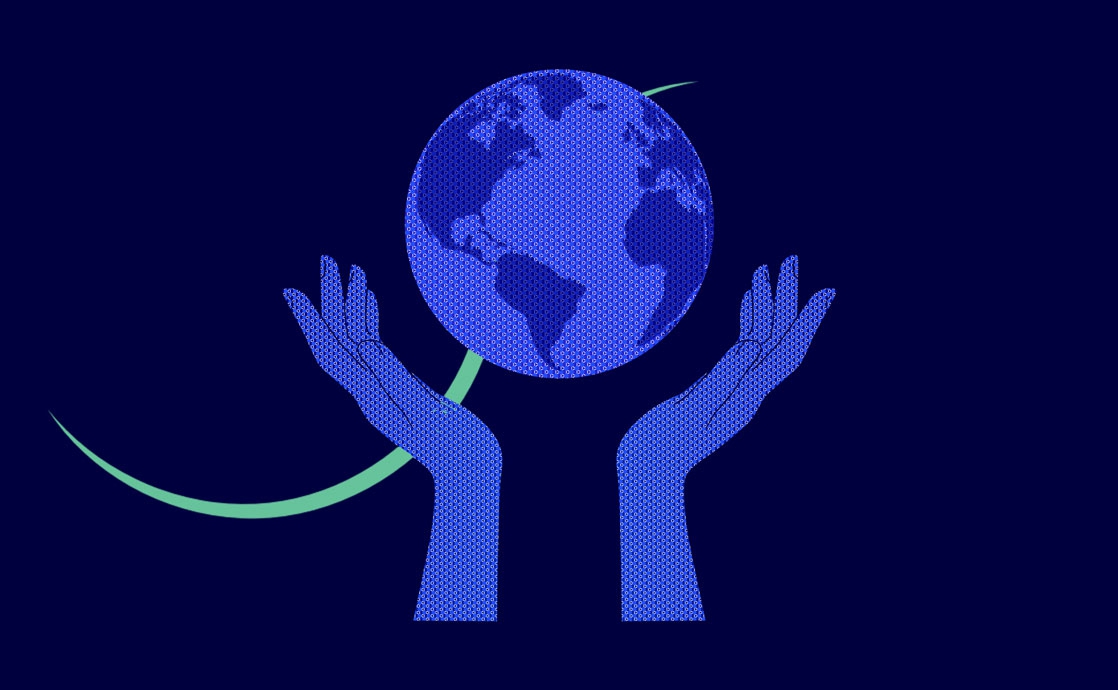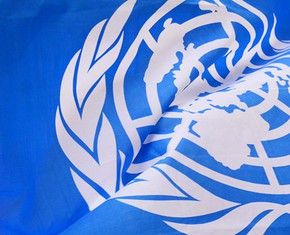The views expressed in our content reflect individual perspectives and do not represent the authoritative views of the Baha'i Faith.
Our world has no shortage of problems, but we can address its central difficulties best by patient but energetic and unrelenting efforts toward encouraging and developing global unity.
Recently, the Universal House of Justice, the democratically-elected leadership council of the worldwide Baha’i community, wrote:
May your minds be ever bent upon the needs of the communities to which you belong, the condition of the societies in which you live, and the welfare of the entire family of humanity, to whom you are all brothers and sisters.
The task is gigantic, yet the advice The Universal House of Justice has given the Baha’is seems consistent and clear: keep working to build loving and inclusive relationships; foster knowledge, volition and action right where you live; and nurture the resilience and cooperative skill of your associates at all levels of society. These principles become tangible in the Baha’i core activities and other unity-producing initiatives that Baha’is have undertaken everywhere, which prepare communities for whatever conditions are yet to come – which could get much worse still. As the House of Justice promised in their message to the world’s Baha’is in April of 2020:
However long and arduous the road that must be travelled, we are supremely confident in your fortitude and your determination to see the journey through. You draw from stores of hope, faith, and magnanimity, putting the needs of others before your own, enabling those who are deprived to be spiritually nourished, those who increasingly thirst for answers to be satisfied, and those who long to work for the betterment of the world to be offered the means.
Though the Baha’i community is numerically small, numbering in the millions and not the billions, former member of the Universal House of Justice Dr. Feraydoun Javaheri insisted, its contribution at all levels of society is essential to an evolving global consciousness.
Carefully examining the current condition of the world helps us realize that crises are fruitful times for constructive grassroots work, especially that distinctive work of building diverse but united, cohesive yet outward-looking local communities. Shoghi Effendi, the Guardian of the Baha’i Faith, designed the first global plan for the Baha’i community’s development, and since then the Universal House of Justice has authored a series of plans that carefully and progressively nourish the processes that bring Baha’u’llah’s vision into reality.
Their May 2020 letter from the Universal House of Justice to Baha’i National Spiritual Assemblies around the world is especially clear about the ongoing responsibility for the Baha’i institutions, communities and individuals, in the face of accelerating crises, to just keep going, “without alarm, but without delay”:
… the state of the world has made the need to render meaningful service to humanity more urgent. Naturally, the activities undertaken must suit the prevailing conditions, but there should be no doubt that this is a time for noble aims, high resolve, and intense endeavour. As is well known, the activities of the Plan are intended to cultivate a thriving community spirit, through which resilience to mighty challenges is also strengthened …. In short, the promotion of the Plan implies building capacity to walk the path of service in every time and season …
Dr. Javaheri echoed his own earlier in-person address to the Baha’is of Ottawa, where he confronted the uneasy issue of busy-ness and distraction. “Why don’t we have time?” he wondered. “The betterment of the world can be accomplished through pure and goodly deeds,” say the Baha’i teachings. Much of humankind suffers from information overload and the furious pace of the materialist “rat race,” but if Baha’u’llah’s followers also struggle to find time for their admittedly unending but indispensable tasks, then some serious reflection is in order.

There was praise, of course, there always is – “Ottawa is doing very well” – but it was followed by a smiling nudge – “but we can always do better.” He asked: what distinguishes anyone dedicated to improving the world, and in particular what makes a Baha’i distinctive, if her or his lifestyle is basically the same as everybody else’s? He called on everyone to assess their ways and means, and the extent to which they are influenced by the unexamined beliefs and “normal” practices of a complacent, consumerist society. He smiled. He was gentle. Like a kindly but firm grandfather, he very clearly called his listeners to arise from whatever comfortable perch they might be attached to and devote themselves, through their actions, to the unifying vision of the Baha’i teachings.
Characteristically, though, he concluded with reassurance as well, in both his virtual remarks in 2020 and the face-to-face comments from last summer. The Guardian, Shoghi Effendi, wrote through his secretary to an individual in 1949 that “all humanity is disturbed and suffering and confused; we cannot expect to not be disturbed and not to suffer – but we don’t have to be confused.”
Baha’is have no natural immunity from catastrophe, from any dip in humanity’s fortunes. However, if they pay heed to the guidance, the vision, and the ongoing experience of their united global community of communities, they can rest assured that better days – sooner or later – are coming. Characteristically avoiding any claim of individual authority, Dr. Javaheri’s talks, and his response to questions, invoked a steadfast hope, as well as encouragement to realign our lives, with service and spirituality as the watchwords. He concluded with powerful words of confirmation from the institution on which he once served, the Universal House of Justice, from its mountainside seat on the slopes of Carmel. They wrote, on the first day of spring 2020:
However difficult matters are at present, and however close to the limits of their endurance some sections of societies are brought, humanity will ultimately pass through this ordeal, and it will emerge on the other side with greater insight and with a deeper appreciation of its inherent oneness and interdependence.
















Comments
Sign in or create an account
Continue with Googleor